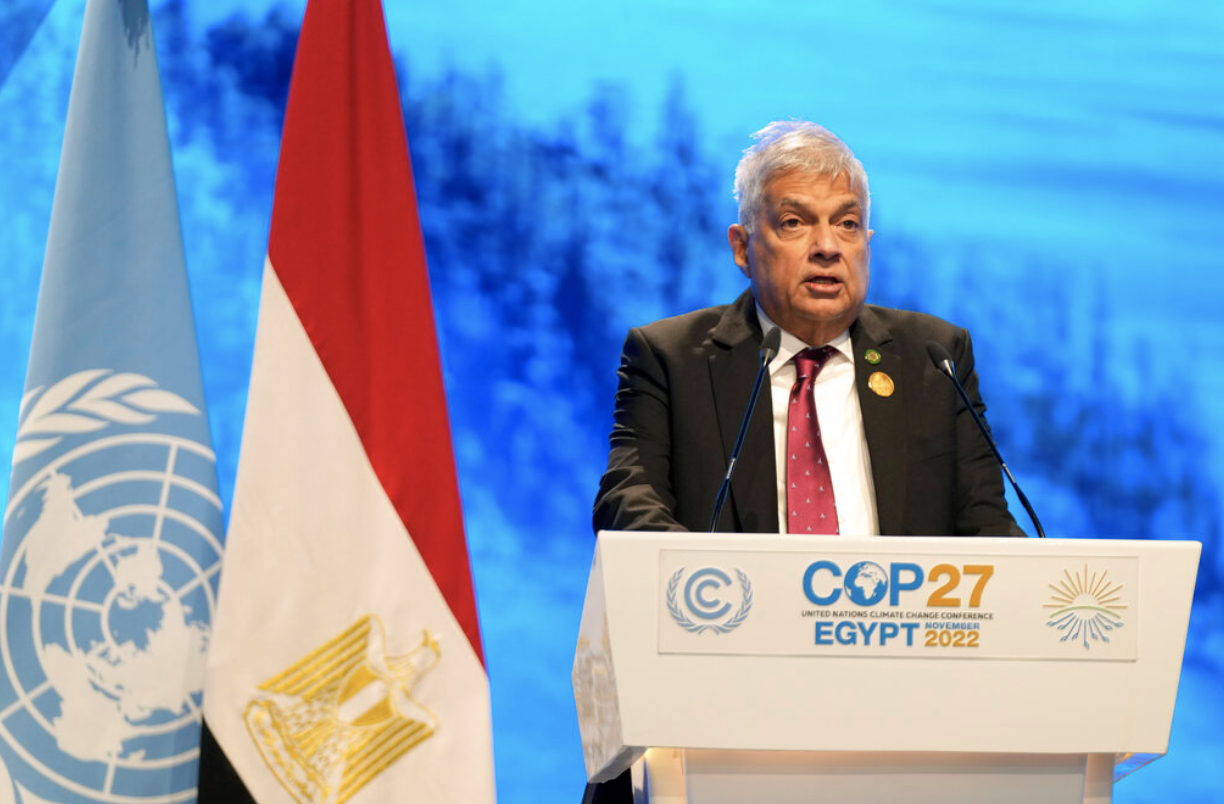UN and Sri Lankan President Conflict on Solution to Financial Crisis
Laborers transport a cart load of rice sacks at a market place in Colombo, Sri Lanka, Monday, Nov. 14, 2022. Photo: Eranga Jayawardena / AP
The United Nations estimated that some 3.4 million of the 22 million Sri Lankans are in need of financial and humanitarian aid. Since the beginning of Sri Lanka’s financial crisis in Sept., the UN has urged immediate and substantial aid to the general population with an initial estimate of 1.7 million people in need.
UN initiatives based in Columbo said that they had made progress in providing aid with nearly $80 million worth of supplies and food to impoverished families, but urged that an additional $70 million is absolutely necessary to provide sufficient stability. In their memo they cited “two consecutive seasons of poor harvests, foreign exchange shortages, and reduced household purchasing power” as the chief drivers of the crisis, warning further that a projected bad harvest in 2023 will likely make the situation worse.
Ranil Wickremesinghe, president of Sri Lanka, speaks at the COP27 U.N. Climate Summit, Tuesday, Nov. 8, in Sharm el-Sheikh, Egypt. Photo: Peter Dejong/AP
In response to the report, Sri Lankan president Ranil Wickremesinghe retorted that the country does not need foreign interference in its internal affairs. Wickremesinghe stated, “[Sri Lanka] can solve our issues,” bluntly framing the issue as one of international influence rather than a humanitarian crisis.
Wickremesinghe released his most comprehensive economic recovery plan on Nov. 14. The optimistic plan is aiming for new economic growth, pushing beyond the current crisis with a planned 8 percent annual economic growth of $6 billion. This growth will come mostly from new exports and increased foreign direct investments, as well as increasing the share of international trade in the Sri Lankan GDP by over 100 percent.
In this plan, Wickremesinghe acknowledged the increasing "acute malnutrition" among young children and $1.4 million in supplement programs to directly combat its growth. This is a far cry from the $70 million recommended by the UN. The Feminist Collective for Economic Justice echoed UN concerns in a scathing criticism of the proposed budget saying “the budget should have prioritised a food distribution system and a universal school meal programme,” while also noting the danger and lack of protection women will now face under the budget.
With nearly 3.4 million people facing potential starvation and the additional 6.3 million people living with acute food insecurity, the debate over economic restructuring and international aid is of extreme importance to a substantial portion of Sri Lankans.
Furthermore, Wickremesinghe placed greater emphasis on resolving rising tensions between the central government and the Tamil minorities of Sri Lanka. He later went on to urge the Tamil minority leaders to “have talks next week [with government officials] and settle all outstanding issues before the 75th anniversary of independence".
Tensions have been heightened lately thanks in no small part to the economic uncertainty facing Sri Lanka in combination with the arrest and holding of Tamil sympathizers. Wickremesinghe called for national unity and cooperation for the sake of stability and economic recovery, using UN intervention as a rallying point. Only time will tell how effective government measures and international aid prove to be for Sri Lanka.


